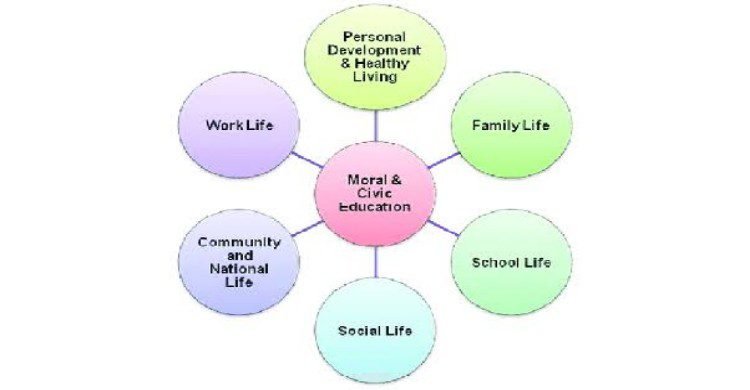Civic education is crucial for creating aware and responsible citizens, and nowhere is this more important than in Bangladesh, a varied and developing country. Civic education is a key component of the nation’s attempts to encourage active citizenship, advance democracy, and make sure that its residents are well-prepared to participate in the government of their country, given that it has a long history of political and social transformation. In this article, we examine the value of civic education in Bangladesh, as well as its curriculum, initiatives by the government, difficulties, and the crucial role it plays in developing tomorrow’s leaders.
The Significance of Civic Education
In Bangladesh, civic education is crucial to the growth of a politically and socially conscious citizenry. Understanding their rights and obligations, the organization of their government, and the values stated in the nation’s constitution empowers citizens. Civic education promotes a sense of active participation and engagement among Bangladeshi citizens by establishing these principles.
Curriculum and Focus Areas
In Bangladesh, civic education is a crucial part of the national curriculum. It covers a wide range of subjects, including the fundamentals of democracy as well as the significance of human rights, environmental protection, and social justice. With the help of this extensive curriculum, teachers can make sure that pupils are not only aware about their own nation but also capable of navigating the wider world.
Government Initiatives
By actively taking part in its development and implementation, the Bangladeshi government has shown its dedication to civic education. Programmers for civic education are greatly influenced by the ministry of education. Government programmers are designed to keep civic education up to date and applicable, reflecting the changing political and social dynamics of the nation.
Non-Governmental Organizations (NGOs)
Numerous non-governmental organization’s (NGOs) are actively engaged in civic education in Bangladesh in addition to official efforts. These groups frequently concentrate on certain concerns like women’s rights, healthcare, and eradicating poverty. By tackling important social and political issues, they add to the whole panorama of civic education.
Challenges and the Way Forward
Although civic education in Bangladesh has come a long way, there are still many obstacles to overcome. These include the requirement for better teacher preparation, higher resource allocation, and the continuing responsibility of maintaining the curriculum in accordance with the dynamically shifting political and social climate of the country. Collaboration between the government, NGOs, and educational institutions is essential to addressing these issues.
Youth Engagement
The emphasis on youth involvement in civic education in Bangladesh is notable. Civic education programmers strive to equip young people with the information and skills essential for active engagement in civic activities because they understand that they are the country’s future leaders. This strategy fosters a generation of responsible and socially concerned citizens while also ensuring the continuity of democratic norms.
The foundation of informed citizenship and a flourishing democracy in Bangladesh is civic education. Bangladesh is not only guaranteeing its future but also advancing the larger objective of a just and equitable society by providing its population, especially its youth, with the information and resources they need to participate fully in civic life. Civic education remains a crucial tool in developing responsible and engaged leaders who will lead Bangladesh towards a better future as the country continues to develop.
To read more blogs like this, click here
Writer
Shahariar Nasib
Intern, Content Writing Department
Youth School for Social Entrepreneur

